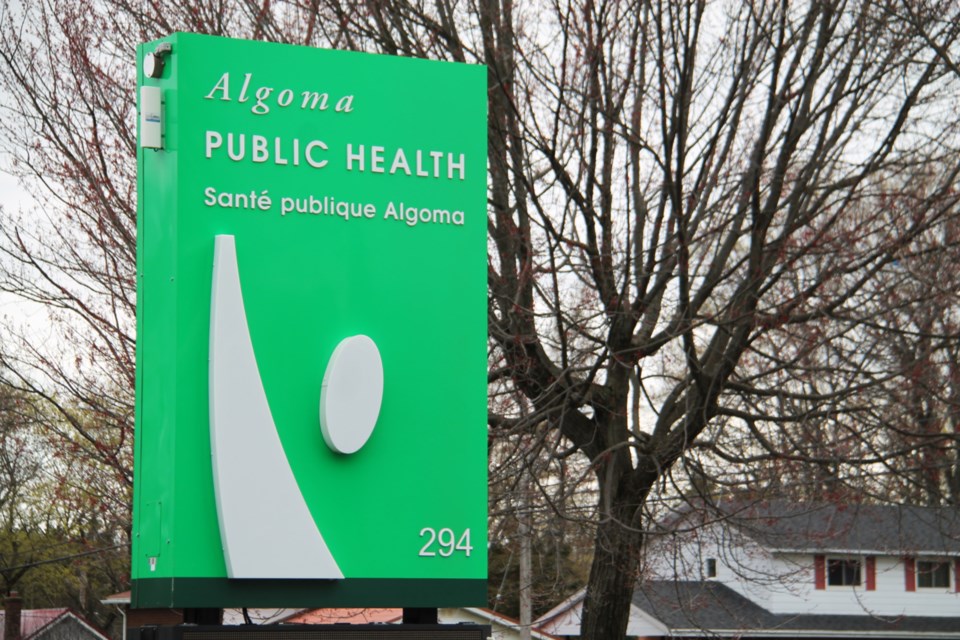Though the Moderna COVID-19 vaccine has made its way to the Algoma region, an Ontario Finnish Resthome resident being the first to receive the vaccine Wednesday, getting the majority of the area’s residents immunized will be a slow process.
“Federally, there have been delays, particularly in the Pfizer product, which has resulted in a shortage of supply. This means that at this point in time there’s a real bottleneck. We are only allocated just enough doses to cover the priorities set by the province,” said Dr. Jennifer Loo, APH medical officer of health and CEO, addressing the APH board of directors at its meeting Wednesday.
“This week and next, that priority is identified as residents of long-term care homes and residents of First Nations elder care lodges. Our allocations this week and next should cover a vast majority of those groups. We do request additional allocations if we’re not able to complete those groups and it is up to the province to make those allocations,” Loo said.
On a cryptic note, Loo told the board, in light of the shortage of doses, “we can certainly share the number of people we have immunized, but on an ongoing basis dose allocations are fluid and we are directed by the Ministry not to share that (information regarding the number of vaccine doses received by the province) in a public forum, and that also pertains to security of the product.”
Two doses of the vaccine are required, given 21 to 28 days apart.
The goal is to administer enough first doses of the vaccine for priority groups in the Algoma region by Feb. 15, the board was told.
Following long-term care home residents, as additional doses become available, the vaccine will be made available to long-term care home staff, residents and staff of retirement homes, people designated as essential caregivers and all other healthcare workers.
When asked if enough workers are available to administer the vaccine, Loo said “in terms of the long-term care homes, they’re very used to immunizing their own because they do flu (shots) every year (with help from APH).”
However, she added “as we transition to essential caregivers and retirement homes, some homes will need a bit of assistance. We are certainly ready to provide that from APH directly. There have also been many local partners who have stepped forward who have essentially offered their administrative services so we are certainly planning for that to happen."
A presentation given to the board by Dr. Celeste Loewe, resident physician at Northern Ontario School of Medicine (NOSM), shows mass immunization in Ontario will be in three phases, due to the limited amount of vaccine (produced by Pfizer and Moderna) available at this point.
COVID hot spots, such as larger southern Ontario centres, have come first, along with long-term care home residents across the province.
“Phase two aims to begin as early as March of 2021 when vaccine supply is expected to increase substantially with stable shipment schedules. Priority groups for phase two include health care providers not covered in phase one, essential frontline workers, the elderly starting at 80 years old and above and people living and working in settings such as shelters and group homes,” Loewe reported.
“Phase three aims to begin as early as August of 2021 when the vaccine is expected to be widely available across the province for anyone who wishes to be immunized,” Loewe said.
The Pfizer-BioNTech and Moderna vaccines were approved by Health Canada in December.
With a reported 95 per cent efficiency (effectiveness) rate, some common vaccine side effects which have been reported include pain at injection site, fatigue, headache, muscle pain and chills.
Loewe said there have been concerns about allergic reactions to the vaccine, though millions of people have been vaccinated around the world.
“Allergic reactions have been reported in a very small number of people...people who are in a life threatening condition that would require a drug called epinephrine (used to reverse an allergic reaction) and that would also possibly need some support at a hospital to make sure they’re okay. These events happen to be quite rare,” Loewe stated.
“We are advising people with previous life-threatening allergic reactions, where they have had to use epinephrine, that they should not take the vaccine.”
Even as COVID-19 vaccinations start to roll out, medical officials say the shots should keep a person from contracting the virus but are still not certain it will keep a person from spreading the virus to others.
“If you get the shot and you (still) get the disease it will be much milder. We are not sure how much the vaccines can reduce the transmission from one (asymptomatic) person to another,” Loewe said.
“It’s a giant study. As everyone is being vaccinated we will know if it will stop transmission.”
Five new cases of COVID-19 were reported by APH Wednesday evening, bringing the region’s total number of cases so far to 155 (with two deaths recently reported).
